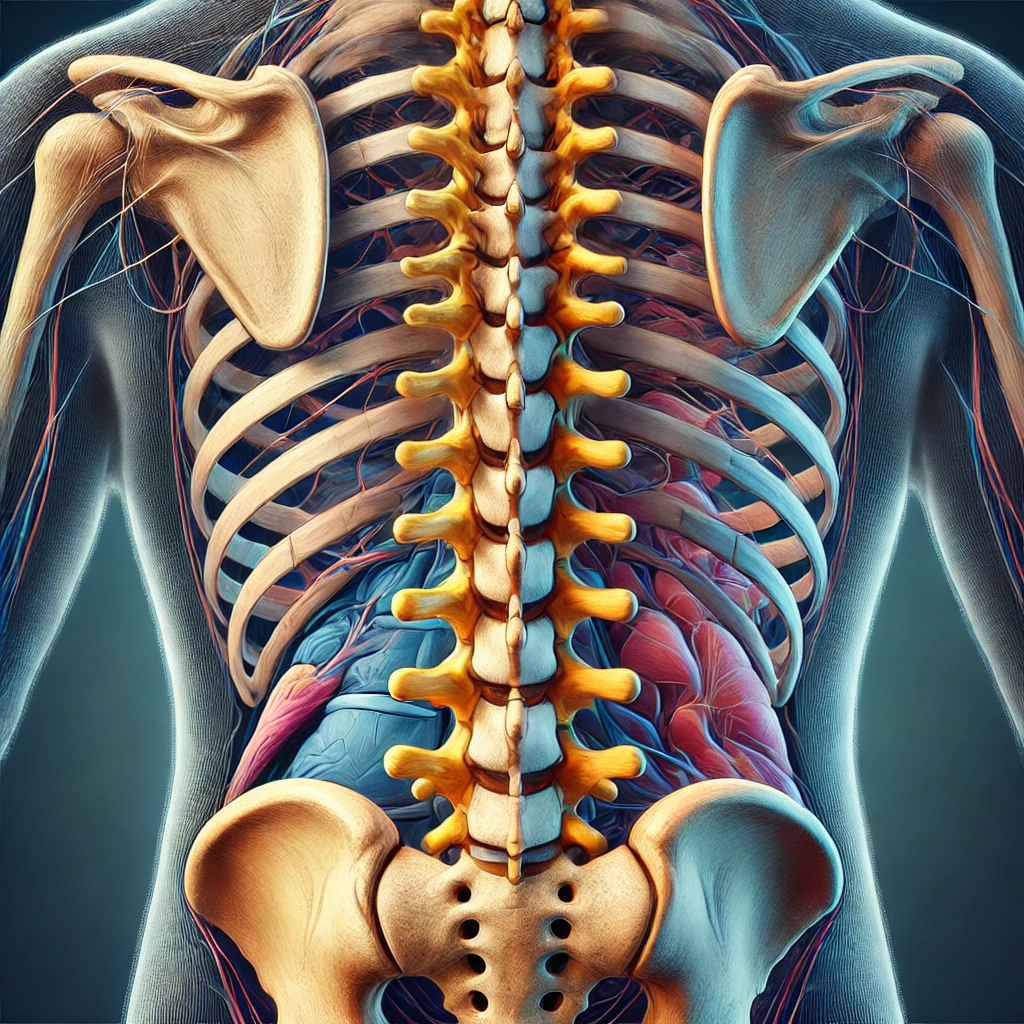A MRI Spinal is a state-of-the-art imaging technique designed to create highly detailed visuals of the spinal cord, vertebrae, spinal discs, and the surrounding tissues. Utilizing strong magnets, electromagnetic waves, and sophisticated computing technology, spinal MRIs provide exceptional clarity without the use of harmful radiation, making them safer than traditional X-rays or CT scans. This diagnostic tool is pivotal in identifying and monitoring various spinal conditions.
Spinal MRIs are particularly beneficial for assessing issues such as persistent neck or back pain, numbness, cramping, or stiffness in the arms or legs. The procedure is non-invasive and generally safe, although certain patient-specific factors, such as implanted medical devices, must be considered beforehand.
Table of Contents
Purpose and Applications of Spinal MRI
Spinal MRIs are instrumental in diagnosing and evaluating numerous spinal conditions. This imaging modality allows healthcare providers to gain a deeper understanding of the spinal structure and detect abnormalities. Some common conditions assessed include:
- Spinal Cord Abnormalities: Detection of swelling, injury, or structural deformities in the spinal cord.
- Tumors: Identification of benign or malignant growths in or around the spine.
- Intervertebral Disc Disorders: Evaluation of issues such as herniated or degenerative discs.
- Fractures: Detection of fractures within the vertebrae or other spinal structures.
- Inflammatory Conditions: Assessment of inflammation caused by infections or autoimmune disorders.
- Nerve Compression: Identification of pinched nerves due to herniated discs or bone spurs.
Signs That Indicate a Need for MRI Spinal
A spinal MRI may be recommended if you experience persistent or unexplained symptoms that suggest spinal issues. Key indicators include:
- Chronic Lower Back Pain: Pain unresponsive to conventional treatments may require further investigation.
- Neck Pain and Stiffness: Ongoing discomfort, especially when accompanied by numbness or tingling in the arms.
- Unexplained Mid-back Pain: Persistent pain in the thoracic region that lacks a clear cause.
- Radiating Pain: Pain spreading to the arms or legs, indicative of nerve compression.
- Restricted Mobility: Stiffness or difficulty in moving the back, potentially signaling structural problems.
- Muscle Spasms: Recurrent cramping during physical activities may point to underlying spinal issues.
- Neurological Deficits: Symptoms such as loss of motor function, or bladder or bowel control issues, warrant immediate attention.

What a Spinal MRI Reveals
A spinal MRI offers a comprehensive view of the following:
- Vertebrae: Analysis of bone integrity, including fractures or signs of degeneration.
- Intervertebral Discs: Detection of abnormalities like bulging, herniation, or wear-and-tear.
- Spinal Cord: Detailed visualization to identify compression, tumors, or other irregularities.
- Nerve Roots: Examination for signs of pinching or inflammation.
- Spinal Canal: Assessment of narrowing (stenosis) or obstructions within the spinal column.
Also Read: Shoulder MRI price in Delhi
Potential Risks and Safety Considerations
While spinal MRIs are safe for most individuals, there are some associated risks and precautions:
- Magnetic Field Hazards: The powerful magnet in the spinal MRI scanner may interfere with certain medical devices, such as pacemakers, cochlear implants, or metallic prosthetics. It is crucial to inform your physician about any implanted devices.
- Heating Risks: Metallic objects can heat up during the scan, potentially causing burns.
- Claustrophobia: The enclosed nature of the MRI machine may cause discomfort. Open MRI scanners or sedatives can be options for anxious patients.
- Contrast Dye Allergies: If a contrast agent is used, some individuals may experience allergic reactions or kidney-related issues. Notify your doctor if you have any known allergies or pre-existing conditions.
Also Read: Pelvic MRI scan in Delhi
Compatibility of Medical Devices with MRI
Certain medical devices and implants may not be MRI-compatible. Examples include:
- Pacemakers and Defibrillators: These devices might malfunction due to the magnetic field.
- Cochlear Implants: Hearing implants can be adversely affected during an MRI.
- Metallic Implants: Items such as joint replacements, surgical screws, or rods should be evaluated for compatibility.
- Vascular Stents and Clips: Ensure these are MRI-safe before proceeding.
Also Read: MRI Abdomen scan in Delhi
If you have any concerns, your doctor or MRI technician will assess the suitability of the procedure for your specific case.
Spinal MRI: FAQ’S
-
What is a spinal MRI?
A spinal MRI is an advanced imaging test that captures detailed visuals of the spine and its components, aiding in diagnosing various conditions.
-
What does a spinal MRI show?
It reveals detailed images of the spinal cord, vertebrae, discs, nerves, and spinal canal, helping detect abnormalities like herniated discs, tumors, or fractures.
-
How long does a spinal MRI take?
The scan typically lasts 30 minutes to an hour. The use of contrast dye may extend this duration slightly.
-
How much does MRI cost for spinal scan?
Costs vary depending on location, healthcare provider, and whether contrast is used. Prices typically range between Rs. 4,000-8,000
-
How to read a MRI report?
Only trained radiologists or specialists should interpret MRI results. They analyze the images to identify abnormalities and provide a detailed report for your doctor.
-
How to prepare for a MRI scan?
Preparation is minimal. Remove all metal objects, and if contrast dye is used, fasting may be required. Discuss any concerns with your doctor.
Conclusion
A MRI is a vital diagnostic tool for identifying and managing spinal conditions. Its ability to produce clear and detailed images without the use of radiation makes it an invaluable resource in modern medicine. By understanding the procedure and preparing adequately, patients can ensure a smooth and informative diagnostic experience.
If you are dealing with unexplained back pain, numbness, or mobility issues, consult your healthcare provider about the benefits of a MRI. Early detection can lead to more effective treatment and a better quality of life.
